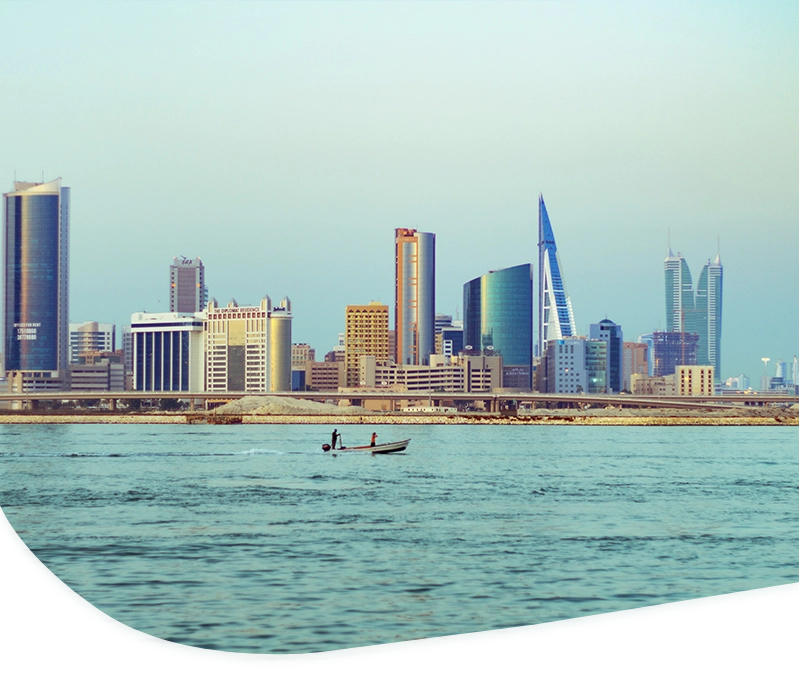Labor Laws in Bahrain
- Annual Leave: 30 days
- Maternity Leave: 75 days
- Public Holidays: 10
- Workweek: 40 - 48 hours per week.

Get everything you need to hire talent in Bahrain. Download our comprehensive guide for hiring in this expanding market.
Capital:
Manama
Language:
Arabic
Currency:
Bahraini dinar
Please enter the following information:
There is no personal income tax (PIT) regime in Bahrain.
The general VAT rate is 10% and applies to most goods and services, with several exceptions where certain goods and services may be subject to a 0% rate or be exempted from VAT.
The current rate of contributions to the SIO is 19% for local employees (12% employer; 7% employee) and 4% for expatriate employees (3% employer; 1% employee.)
The Ministry of Health charges an annual health insurance fee of BHD22.5 for each Bahraini employee.
Here is work visa information for Bahrain, download our guide for an extensive breakdown.
To work in Bahrain, all expatriates must have a valid work permit.
To be allotted work visas, an entity that employs expatriates must satisfy the following conditions:
Setting up a company in Bahrain can be expensive and complex. Global Expansion simplifies your entry into this market.
We handle hiring, HR, and payroll while ensuring compliance with local regulations, all without establishing a local entity.
Our Bahrain Employer of Record (EOR) solution gives you the freedom to focus on your business growth.